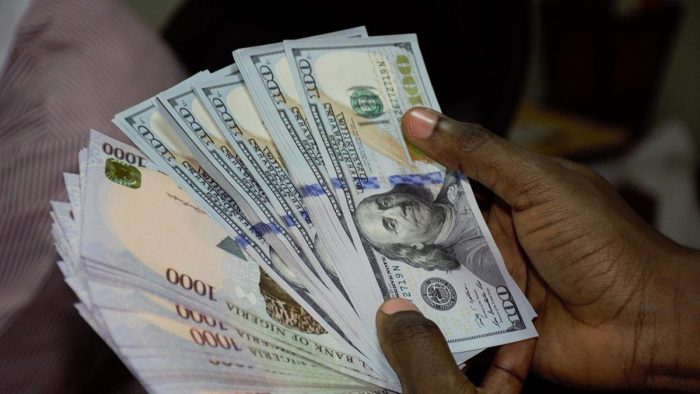The naira-dollar exchange rate, which stabilised in the official foreign exchange (FX) market between July and December 2024, is projected to maintain its stability through 2025.
This optimistic outlook comes from Muda Yusuf, director and CEO of the Centre for the Promotion of Private Enterprise (CPPE), who shared his insights in an economic review for 2024 and a forecast for 2025.
“The naira experienced a significant period of calm in the latter half of 2024, following a turbulent 18 months. Regulatory reforms and periodic interventions by the Central Bank of Nigeria (CBN) played a pivotal role in achieving this moderation in exchange rate volatility,” Yusuf explained. By the close of the year, the official exchange rate at the Nigerian Foreign Exchange Market (NFEM) stood at N1,537, a modest rise from the average rate of N1,455.59 in January 2024 and N907.1 in December 2023.
Several factors underpin this stability and support a positive outlook for 2025. Yusuf highlighted critical developments such as Nigeria’s foreign reserves exceeding $40 billion and anticipated further improvement in reserve accretion.
“This progress is largely driven by increased inflows from International Money Transfer Operators (IMTOs) and robust diaspora remittances,” he said.
Additionally, measures like the $2 billion Eurobond proceeds, a $500 million domestic dollar bond, and the clearance of $7 billion in legacy forex obligations by the CBN are expected to bolster the central bank’s capacity to intervene in the forex market effectively.
Another game-changer is the import substitution impact of the newly operational Dangote and Port Harcourt refineries. “With these refineries easing the demand pressure on forex for fuel imports, the naira will benefit from reduced dependency on external currency flows,” Yusuf observed. He also noted a gradual recovery in the non-oil export sector, which could contribute positively to foreign exchange inflows.
Inflation, which soared to 34.2 percent in November 2024, is expected to moderate slightly in 2025. Yusuf attributed this potential easing to a reduction in exchange rate volatility, geopolitical shifts following Donald Trump’s return to the U.S. presidency, and a possible stabilisation of global oil markets.
“The rebound of the naira and the easing of energy costs could provide much-needed relief to the inflation trajectory,” he said. Additionally, the base effect of elevated inflation in 2024 could make 2025 figures appear comparatively moderate.
Despite these optimistic projections, Yusuf cautioned that certain inflationary pressures may persist in 2025. “Challenges such as high energy costs, transportation expenses, and insecurity affecting agricultural output will continue to influence the inflation landscape. Climate change, flooding, and global supply chain disruptions will also remain factors to watch,” he warned.
Reflecting on the impact of inflation in 2024, Yusuf described its far-reaching consequences. “Rising costs of living worsened poverty, while businesses faced escalating operational expenses and shrinking profit margins. Weak consumer purchasing power meant that businesses could not pass on the additional costs to consumers,” he stated. This economic strain also led to elevated risks of loan defaults, skyrocketing project costs, and abandoned initiatives across various sectors.
As Nigeria navigates the complexities of a dynamic global and domestic economy, the projected stability of the naira offers a silver lining. “The groundwork laid in 2024 through reforms, interventions, and strategic measures provides a solid foundation for economic resilience in 2025,” Yusuf said, stressing the importance of maintaining and enhancing these efforts in the coming year.
Join BusinessDay whatsapp Channel, to stay up to date
Open In Whatsapp





